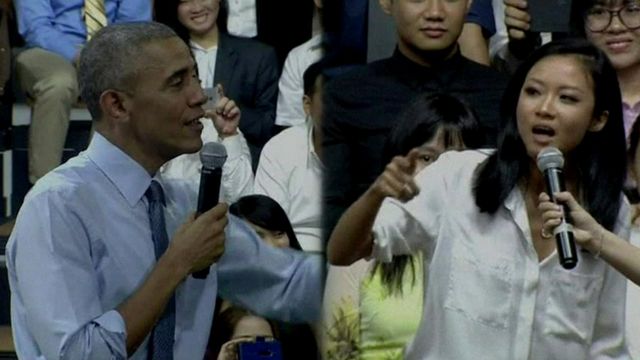Asia Rising was really intriguing for anyone who is interested in Hip Hop outside of the United States.
There were a couple of things that really stood out to me:
- Hip Hop means something very different for different people who become rappers in Asia, that isn’t completely unlike here. Some rappers, like Vietnamese MC Suboi (who was one of my personal favorites) connected with hip hop’s ability to speak to social issues and even dropped a couple of bars about the wealth disparity in Vietnam to President Obama.
 For others like Rich Brian, the 18 year-old who has become one of the most well regarded rappers in Asia and now the States, his fascination with American culture just naturally led him to hip hop and it became another object of intrigue. The common thread was the link of hip hop to American culture for a lot of these MCs- many credited the music they heard for helping them learn English.
For others like Rich Brian, the 18 year-old who has become one of the most well regarded rappers in Asia and now the States, his fascination with American culture just naturally led him to hip hop and it became another object of intrigue. The common thread was the link of hip hop to American culture for a lot of these MCs- many credited the music they heard for helping them learn English. - I think Asian hip hop groups face a different set of obstacles than American ones do. Suboi discussed the ways in which Siagon’s censorship laws often make music the only outlet these artists have to express their opinions and thoughts; she recalls interviews and television appearances where she’s censored herself for her own safety. In a genre that demands authenticity for respect, censorship becomes an entire entity of its own. Artists like Jin Dogg and rap group the Higher Brothers spoke to the racism they’d experienced when they first broke into the scene; many argued that rapping was only for certain languages, whereas Korean, Chinese, etc were unsuitable. So, of course, they made tracks to dispute their haters.
- The last quick thing: it did not go unnoticed that the MC with the most commercialized success globally (Rich Brian) was also the rapper who was most immersed in American culture, spoke fluent English without a strong accent, who’s first intro to rap was a white MC, and portrayed the images of hip hop most similar to the ones he saw in Western culture.




